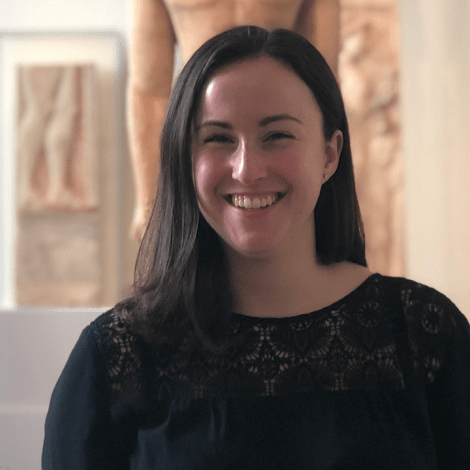| ARTH-290AR | Issues in Art History: 'Art and Experience in Ancient Rome' | 4 |
| CLAS-101 | Elementary Latin I | 4 |
| CLAS-102 | Elementary Latin II | 4 |
| CLAS-111 | Elementary Greek: Homer's Iliad | 4 |
| CLAS-112 | Elementary Greek: Homer's Iliad | 4 |
| CLAS-201 | Intermediate Latin I | 4 |
| CLAS-202CE | Intermediate Latin II Topics: 'Cicero and the Enemies of the Roman Republic' | 4 |
| CLAS-202RC | Intermediate Latin II Topics: 'Roma Ludens: Comedy and Satire in Ancient Rome' | 4 |
| CLAS-202RN | Intermediate Latin II: 'Petronius' Satyricon and the Roman Novel' | 4 |
| CLAS-202VA | Intermediate Latin II Topics: 'Vergil: Aeneid' | 4 |
| CLAS-202WR | Intermediate Latin II Topics: 'Myth, Memory, and History: Writing the Past in the Roman Republic' | 4 |
| CLAS-216 | Ancient Rome | 4 |
| CLAS-218 | Gods and Mortals: Classical Mythology | 4 |
| CLAS-226 | Bread and Circuses: The Politics of Public Entertainment in Ancient Rome | 4 |
| CLAS-227 | Ancient Greece | 4 |
| CLAS-231 | Greek Tragedy, American Drama, and Film | 4 |
| CLAS-242 | Kingdoms Human and Divine | 4 |
| CLAS-247 | Knowing God | 4 |
| CLAS-250AR | Intermediate Topics in Classical Studies: 'Art and Experience in Ancient Rome' | 4 |
| CLAS-250EC | Intermediate Topics in Classical Studies: 'Ecology, Crisis, and Renewal in Ancient Near Eastern Mythology' | 4 |
| CLAS-295 | Independent Study | 1-4 |
| CLAS-302 | Cicero and the Enemies of the Roman Republic | 4 |
| CLAS-307 | The Slender Muse | 4 |
| CLAS-308 | Classical Epic: Homer, Vergil, and Ovid | 4 |
| CLAS-309 | Vergil: Aeneid | 4 |
| CLAS-312 | Roma Ludens: Comedy and Satire in Ancient Rome | 4 |
| CLAS-313 | Myth, Memory, and History: Writing the Past in the Roman Republic | 4 |
| CLAS-316 | Ovid: Metamorphoses | 4 |
| CLAS-318 | Petronius' Satyricon and the Roman Novel | 4 |
| CLAS-320 | Bad Roman Emperors | 4 |
| CLAS-395 | Independent Study | 1-8 |
| HIST-226 | Bread and Circuses: The Politics of Public Entertainment in Ancient Rome | 4 |
| HIST-227 | Ancient Greece | 4 |
| HIST-228 | Ancient Rome | 4 |
| HIST-320 | Bad Roman Emperors | 4 |
| PHIL-201 | Philosophical Foundations of Western Thought: The Greek Period | 4 |
| POLIT-211 | Classical Political Thought | 4 |
| RELIG-225KG | Topics in Religion: 'Knowing God' | 4 |
| RELIG-225KH | Topics in Religion: 'Kingdoms Human and Divine' | 4 |


